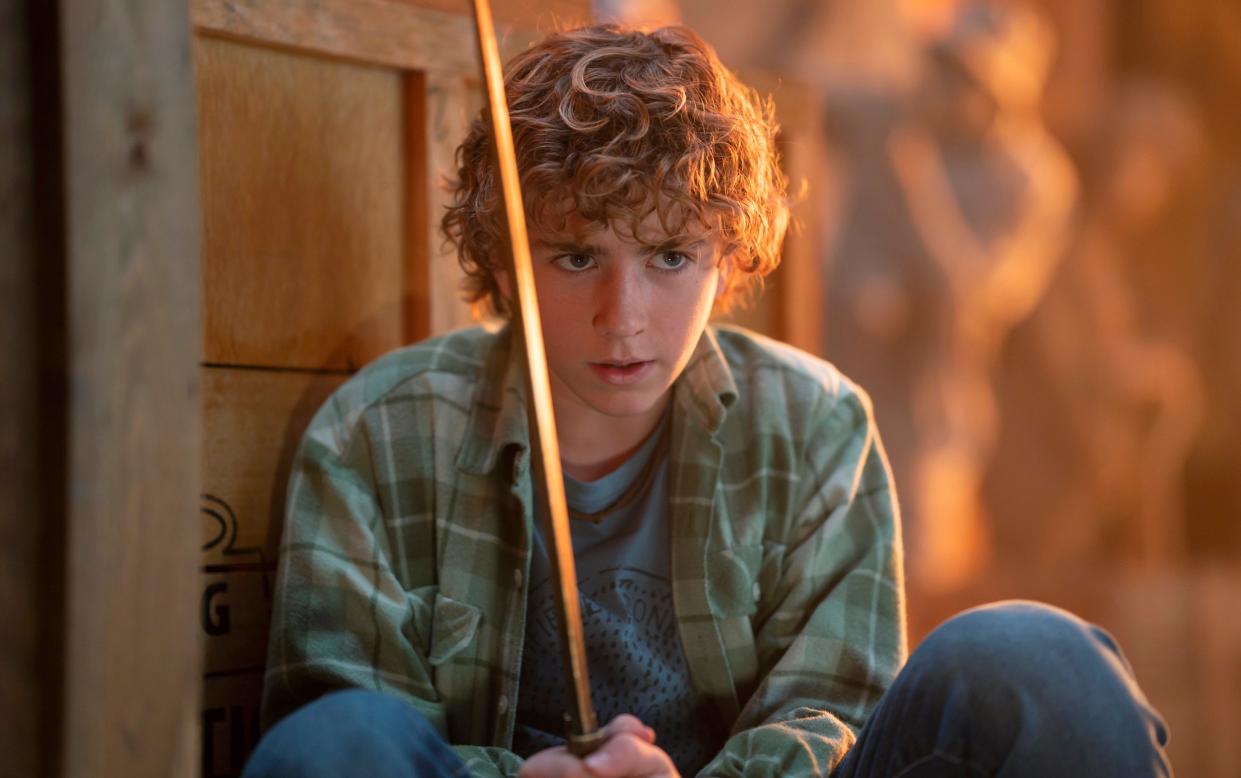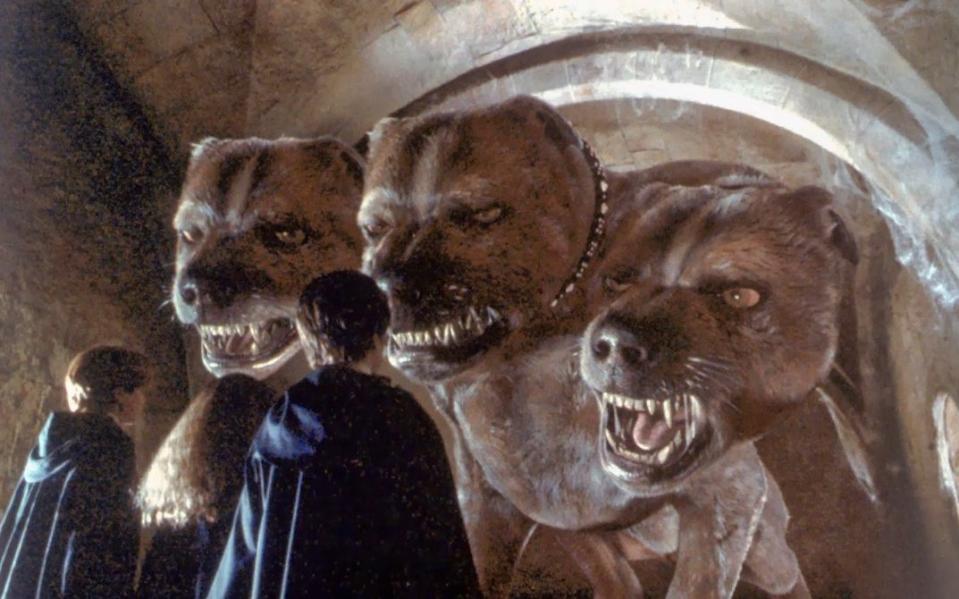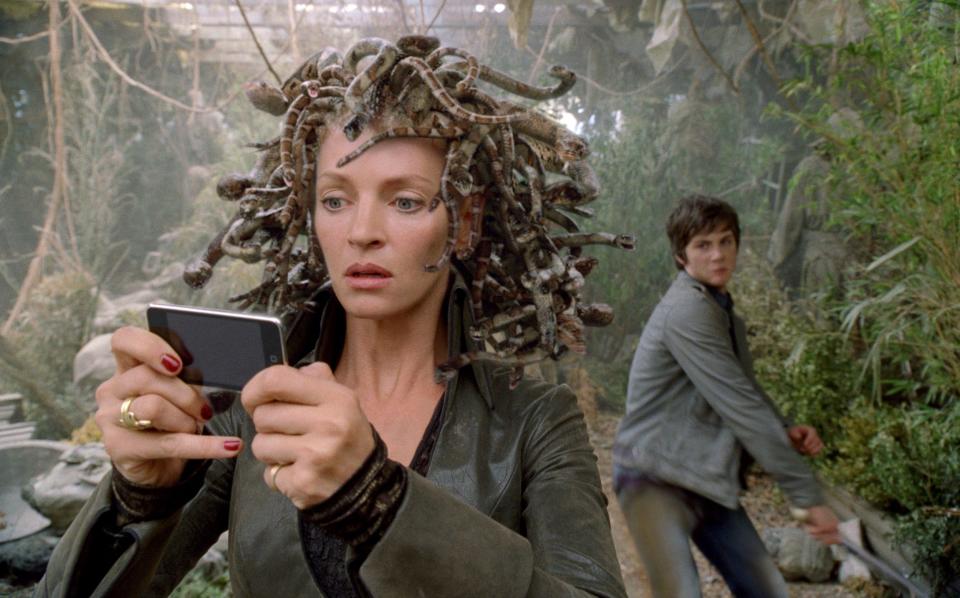Want to learn the Classics? Read some kids' books

Percy Jackson lives in a world of self-filling goblets, flying horses and twisting labyrinths. The 12-year-old protagonist of Rick Riordan’s bestselling children’s books describes himself as “a troubled kid”, but when it comes to distinguishing centaurs from minotaurs, interpreting classical Greek, and digesting the kind of food usually reserved for insatiable gods, he is little short of a prodigy.
When Percy arrives on the small screen this Christmas – via Disney+’s Percy Jackson and the Olympians – he will be bringing some of these wonderful relics of antiquity with him. For Percy is, to his own astonishment, a “half-blood” or demi-god. The hybridised creatures, titans and nymphs that he used to believe existed only in ancient books, steadily become his reality.
I have long had a soft spot for Percy Jackson. As a classicist, I am often asked whether it is cheating to earn a classical education through fiction or films, and my answer is almost always no. Reading Homer’s Iliad in the Greek is wonderful and rewarding, but it can take a while to become sufficiently proficient in the language, and anyway, why would you even contemplate doing so if you didn’t already know what the text was about?
Riordan, like many authors before him, knows that even in English the myths and legends of ancient Greece are nectar to a child’s imagination. CS Lewis, who read Classics at Oxford, drew heavily on Homer’s Odyssey in his Chronicles of Narnia, especially The Voyage of the Dawn Treader, which is based around a sea journey and a homecoming. His Mr Tumnus is a not-so-goatish classical faun. JRR Tolkien, Lewis’s fellow Inkling, had many sources of inspiration for Lord of the Rings, but echoed the Greek myths in his depiction of meetings with the dead.

JK Rowling, too, borrowed heavily from the Classics for some of her most curious characters. Fluffy, the three-headed dog, is the modern equivalent of Cerberus, the multi-headed guard dog of Hades. Her Harry Potter novels reference many Greek mythological characters, including gorgons, and wizards bearing Latin names. Albus, the first name of Dumbledore, means “white”, while Sirius Black takes his Christian name from the Dog Star.
The classical myths are often dark and lacking in redemption, but where there are winged gods, talking animals and shape-shifters, there is also magic. One of the joys of Riordan’s books, which have sold in excess of 100 million worldwide, is that they dip you ever so gently into their world through Percy’s disbelieving eyes.
The first book in Riordan’s series, Percy Jackson and the Lightning Thief, upon which the new TV series is based and which was adapted for the first of two films released in 2010 and 2013, opens with Percy describing a recent school trip to the New York Met “to look at ancient Greek and Roman stuff”. As his favourite teacher, the wheelchair-using Mr Brunner, educates the class in the art of the ancient grave-marker or stele, Percy finds that he immediately recognises the classical imagery in front of him. Kronos, the Titan father of Zeus, is eating his children in a bid to prevent them from growing up and usurping his throne.

Percy has no idea how he knows this. He has been told he has both dyslexia and ADHD and, while he is obviously superbly bright, he usually struggles at school. For the moment, he attributes his mysterious prowess in Classics to his admiration for Mr Brunner, but he cannot shake off the feeling that this subject somehow matters. Piecing together what its uses are, and why he is so good at it, eventually leads him to unlock his true identity as the son of the ancient Greek god, Poseidon.
While today’s Classics teachers do their best to convince their pupils that Latin and Ancient Greek are not really dead languages, and the classical world is far from obsolete, Mr Brunner has an enviable advantage. He can point to the statue of Prometheus at the Rockefeller Center in New York and at the Greek façades of the government buildings in Washington DC as proof that antiquity is “a living force”, but he can also reveal an astonishing personal secret. His wheelchair is not a wheelchair at all. It is a horsebox, and it conceals the back half of his body, which is unmistakably equine. Beloved Mr Brunner transpires to be none other than Chiron, the clever and amiable centaur, most famous in the ancient world as the tutor of Achilles.
In Percy’s universe the classical world is in a perpetual process of regeneration. The Athenian hero Theseus may have killed the Minotaur in ancient times, but such monsters, as Percy discovers, have the ability to reform and battle mortals in the modern world all over again. The gods of Mount Olympus have a new base in New York.
Riordan has great fun reviving the myths in these modern settings. Among his amusing chapter headings (I Accidentally Vaporize My Maths Teacher; We Visit the Garden Gnome Emporium; We Get Advice from a Poodle) is Three Old Ladies Knit the Socks of Death. The phrase alludes to the classical Fates, who were traditionally characterised as hideous old women spinning the thread that determined the course of mortal lives. Their thread, to Percy’s bemusement, goes into producing socks the size of sweaters.
A giant Cyclops makes an appearance in The Battle of the Labyrinth, the fourth book in the series, wearing “ragged XXXL jeans”, a floral apron and washing-up gloves. Percy’s friend Annabeth is the half-blood daughter of the goddess Athena and a professor at West Point military academy. If the ordinarily chaste war goddess was going to have an affair with anyone, it might as well have been with him.
Percy befriends Annabeth at Camp Half-Blood, which has flavours of Hogwarts minus the sorting hats, but if anything is even more of an academic hothouse. Finally finding himself among his own tribe, Percy discovers that his ADHD is actually a battle reflex-enhancing magical power, and his dyslexia the consequence of being naturally attuned to reading classical Greek rather than English.
In the same way as the Harry Potter franchise inspired children to memorise incantations and spells, the Percy Jackson books have the potential to fuel a fascination with the peculiarities of the classical Greek language. At Camp Half-Blood, children routinely curse and pray in Greek. O Zeu kai alloi theoi (Oh Zeus and the other gods!), implores Percy’s boy-goat satyr friend, Grover. Errete es korakas (Go to the crows), shouts Annabeth, rehearsing a common Greek utterance to an enemy. Beautiful women do not look a million dollars in these parts but rather “a million gold drachmas”.
The classical myths have evolved and given rise to imaginative retellings since the earliest times. The Percy Jackson books – and TV series – bring home how malleable the genre continues to be. For children enjoying their first forays into the world of antiquity, few things could be more exciting than imagining the divine vistas of Greece and Rome revived in the schools and streets of the modern world. Classics, as Chiron tells Percy, was never really dead at all.
Percy Jackson and the Olympians is on Disney+ from December. 20 Daisy Dunn’s The Missing Thread: A Women’s History of the Ancient World is out in May


